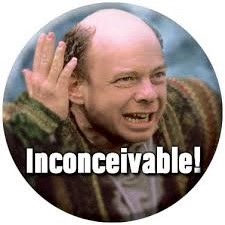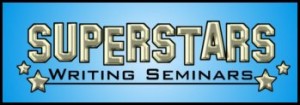The writing business is not an easy one. It’s long, lonely hours of producing material often followed by piles of rejection letters before we even get our shot. Even then, there is nothing guaranteed. It’s an enter at your own risk sort of business. Chances are you will not be made rich, nor famous, nor even influential. Why then do we even bother?
 One and all, we are here because we love stories. We were touched at some point in our lives by the words of another and were inspired to share our own thoughts and creativity with the world. Writers are born from fans. So then, it would be absolutely, utterly inconceivable that we, as authors, would cringe at any amount of fan attention. Honestly, it depends on the person. First and foremost, writers are people, and many of us are introverts. Interacting with people isn’t easy, so many authors create a mental space that I call the “fan-zone.”
One and all, we are here because we love stories. We were touched at some point in our lives by the words of another and were inspired to share our own thoughts and creativity with the world. Writers are born from fans. So then, it would be absolutely, utterly inconceivable that we, as authors, would cringe at any amount of fan attention. Honestly, it depends on the person. First and foremost, writers are people, and many of us are introverts. Interacting with people isn’t easy, so many authors create a mental space that I call the “fan-zone.”
When you approach an author at a convention or some other event, they will be continuously evaluating everyone around them to decide if they will be shelved in one of three categories. First, is this someone with whom I can do business (agents, editors, publishers, etc)? Second, is this a person who will not expect anything from me other than normal social interactions (fellow writers or non-fans)? Finally, is this person a fan, a person for whom I will need to project my authorial persona? This split-second categorization will help determine how they interact with you.
The fan-zone is not a bad place to be, in fact, many authors love interacting with fans. For me, talking about writing and stories with people is one of the best parts of being a writer. Through trial and error and a bit of advice given to me by good friends, I have come up with a list of pro-tips that I try to hold to while interacting with authors.
Pro-Tip #1: Be a fan in MODERATION
You don’t want to be this guy. Seriously, just don’t.
[youtube=http://www.youtube.com/watch?v=wykoU2zstIM&start=20&end=26&rel=0]
There is no better way to put your favorite author on the defensive than to come off as too eager or demanding. Please, show your appreciation for their work and talent, but also be aware of how you appear to the other person. If a perfect stranger were to approach you the way you are about to approach your favorite author, would you want to talk to them?
Pro-Tip #2: Be CONSIDERATE of the author’s commitments
Authors typically have a large number of demands on our time and attention. Aside from our personal lives, we have deadlines and our own projects to work on. When at conventions, we’ll typically have a schedule of things that need to be accomplished or places we need to be. The better known the author, the more extreme this becomes. Please keep this in mind when approaching your favorite author. If you chat with them for a few minutes and things seem to be going well, feel free to offer to buy them a cup of coffee or lunch. If they turn you down, it’s probably not personal.
Pro-Tip #3: Read the SOCIAL QUES and respond appropriately
Non-verbal ques are essential to any interaction and are a large part of what allows the social contract to function. Is the author settling into a more comfortable position while leaning forward to engage you? Perhaps they are interested in a more lengthy interaction. Do they seem to be backing up or turning their body away from you? The conversation is likely over. Are they looking to the next person in line at a signing? Chances are that they have spent all the time they can with you and need to move on. Social ques are highly individual and situational, so you’ll have to use your best judgment to figure out what is being said.
Pro-Tip #4: Respect the author’s PRIVACY
Unless you are planning on using the facilities yourself, don’t ever follow an author/agent/editor/person into the bathroom. Even then, it’s something to be avoided. Though inappropriate and unnecessary, it is a tactic that is still attempted none the less. Read blogs or articles online from editors and agents and they seem to universally agree: the bathroom is neither the time nor place to pitch your next great manuscript. The same thing applies to waiting in ambush outside the door. In general, it’s a bad first impression. If the person you are trying to talk to makes a move towards some place where they should have the reasonable expectation of privacy, the conversation is done.
Pro-Tip #5: Authors are PEOPLE TOO
As fans, we create this pedestal upon which we settle our favorite authors. We want them to be kind and charming, to share their experience and love of their characters and stories with us. Truth is, writers are people too. However, writers are people too. We get tired, hungry and cranky. Conventions and signings are business trips for us. We are continuously working for the space of a few hours or maybe even up to a week. The unfortunate truth is that some writers are just arrogant jerks. Be prepared for your favorite author to be human. Be a person to them, not just a fan, and things will likely go better.

